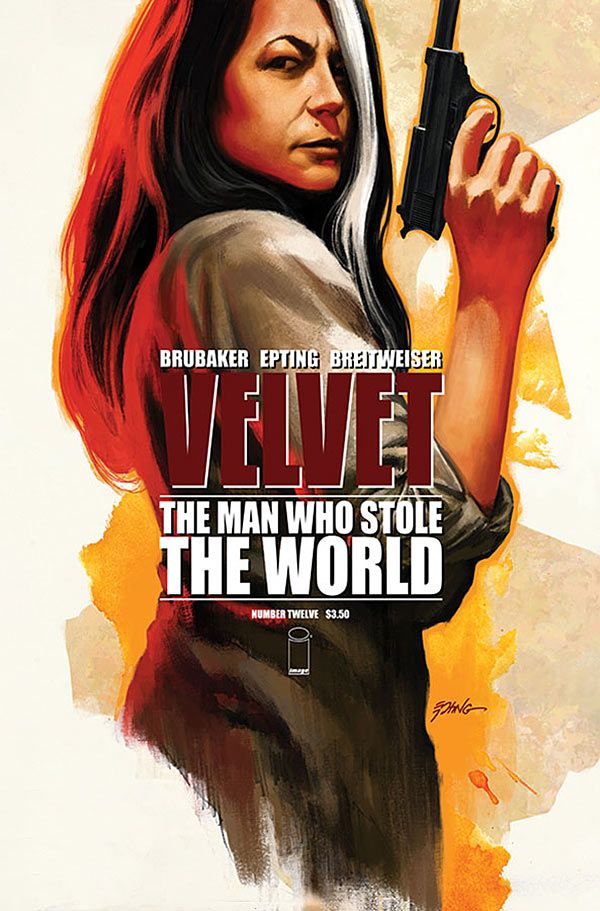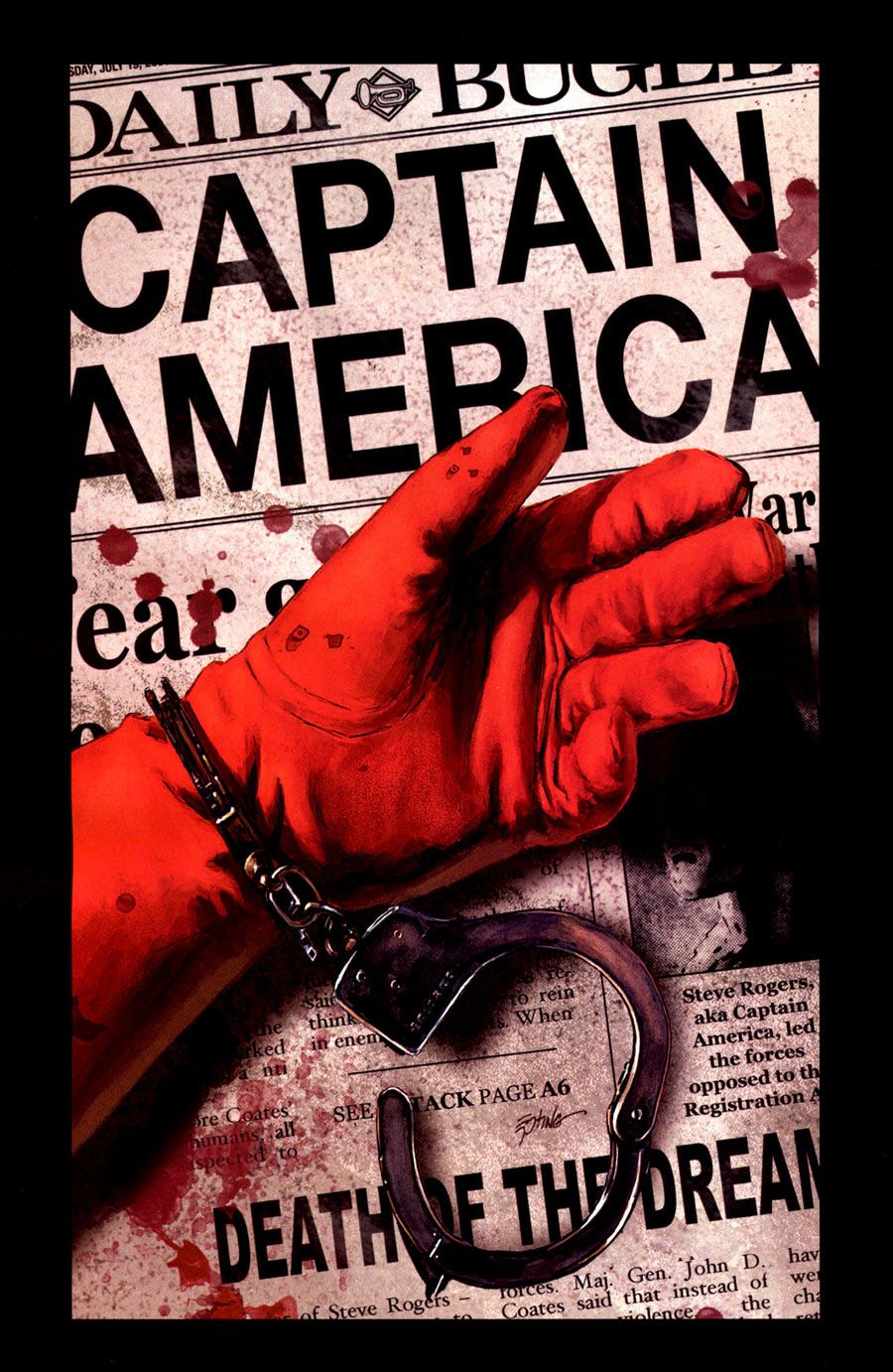WonderCon 2015 attendees jammed into a crowded room to hear writer Ed Brubaker discuss his life and work, focusing on his current Image Comics titles "Velvet" and the "The Fade Out," while also taking a brief, reflective look at his groundbreaking run on Marvel Comics' "Captain America."
The co-author of fellow Image title "The Thrilling Adventure Hour," Ben Blacker, served as moderator, kicking off the panel with a casual "What's new?" to laughter from the audience.
"Lately I have been working a day on a TV show for HBO," said Brubaker. Asked if he could say more about the project, Brubaker told him, "Not really, no."
Blacker proceeded to address Brubaker with questions about his writing process, asking if Brubaker sticks to a daily ritual. "My schedule is a bit nuts right now -- I get up very early in the morning and write before I have to go into a writing room." The writer explained that he does most of his "thinking" writing through a notebook. "I don't think I do any good thinking when I'm sitting at my computer typing," said Brubaker. Brubaker explained that he starts writing a new series with a character that he begins to flesh out via a single notebook.
The author teased that one of his projects non-comics might begin shooting this Fall. "Do we all know if this is common knowledge?" asked Blacker.
"No, I don't know -- we'll see," said Brubaker.
Trying to steer the conversation to subjects the writer could actually provide details on, Blacker asked, "What can you talk about?" before asking Brubaker how he alters his narrative approach between comics and other media.
"If you are familiar with my comics, there's a lot of narration," said Brubaker. "Sometimes like first-person narration, and sometimes third-person. In movies and TV shows unless you're ['iZombie' showrunner] Rob Thomas, you can't get away with that much narration. I have tried a number of times, and that's always the first note: 'Can we lose this voiceover?'"
Brubaker said he doesn't believe the writing phrase "show don't tell." The writer explained that he can show different scenarios in comics with words. He also said he's at his best making creator-owned comics with artists he frequently works with. "Then I can write as little as possible on every page," said Brubaker. "My initial instinct is always to explain everything too much, then I go back and cut-out and just leave what needs to be there."
Blacker asked if he thinks about the story visually and adjusts to each artist's skill set. Brubaker said yes, referencing Becky Cloonan as an artist that he would "love" to work with. "Cloonan and I have circled each other for a number of years," said Brubaker, who added that he wants to work with artists Steve Epting, Sean Phillips, and Elizabeth Breitweiser.
The writer explained how he worked with Philips to closely replicate Hollywood in the late '40s for his newest series, "The Fade Out." He made clear they needed to integrate photo reference within the background to stay true to the decade, but that they didn't take old pictures and use them as characters for the story. The pair still wanted to get every detail right in the comic with old cars, clothing and the neighborhoods in Los Angeles that no longer exist.
Brubaker talked about how "Velvet" is something he came up with back when he was working on "Captain America" alongside Epting, an idea hatched during the first year of his run.
Blacker than asked how his process evolves from an outline into an ongoing series. "I will make a list of everything that needs to happen happen in that issue, not all of it will -- because I will run out of space." Brubaker said "Velvet" evolved from an 80-page graphic novel into an ongoing series.
Asked whether he works concept or character first, Brubaker said he always starts with character, and that "The Fade-Out" started with Charlie. Contrary to what some readers believe, Brubaker clarified that Charlie is not based on his uncle, a screenwriter who vouched for his blacklisted friend. "People ask me if this was based on my uncle, and I tell them -- of course not," Brubaker said. "I barely knew my uncle. He was fifty years older than me."
"I do it panel-by-panel and single-spaced," Brubaker said of his scripting process. "I am fairly detailed -- I tell the artist everything thing they need to know and some stuff that they don't need to know and that they don't need to include but what they should know anyway." He clarified that he doesn't include the amount of detail that Alan Moore does in his comics. "I generally want to have a single page of type for every page in the comic," admitting that in his early works he tended to put too many words in his balloons.
Blacker told the audience about working as an actor on the "Comedy Bang! Bang!" podcast, where he played a faux Vince Gilligan, creator of "Breaking Bad." Brubaker explained that he was asked to play Commissioner Gordon on the episode with Joseph Gordon Levitt as a guest, but the writer refused, saying he didn't want to take the job away from another actor. "Do you know how much work you can get done on the set of a thing," said Blacker. "You just wait around all day."
Blacker opened the floor to audience questions, the first of which was about whether the Winter Soldier was created organically out of the story Brubaker was telling in "Captain America." "I started coming up with it when I was a teenager," said Brubaker, who cited Bucky Barnes as his favorite character. Brubaker believed Stan Lee wanted to bring the character back, "if sales got low enough." Brubaker said he wandered into Marvel when "sales were low enough" and was allowed to write the the story he wanted.
The fans erupted in applause when the author announced he wrote 100+ issues of "Captain America." Blacker asked if he had any other stories that he wanted to tell, which Brubaker answered with a simple "No.
Another fan asked about the "Books of Doom" miniseries. The writer said editor Tom Brevoort called him up and wanted to do a Russian novel about Doctor Doom's life story. Brubaker came up with the idea of the Doctor frozen in his father's arms, explaining, "I wrote him as a sympathetic lead."
Finally, Blacker asked what Brubaker was reading. "Tinseltown" was the answer, for research purposes for various titles. He cited other Image titles such as "Southern Bastards," "The Wicked + The Divine," and "Sex Criminals." He also said he frequently returns to works like "From Hell" and "V for Vendetta" written by Alan Moore.



